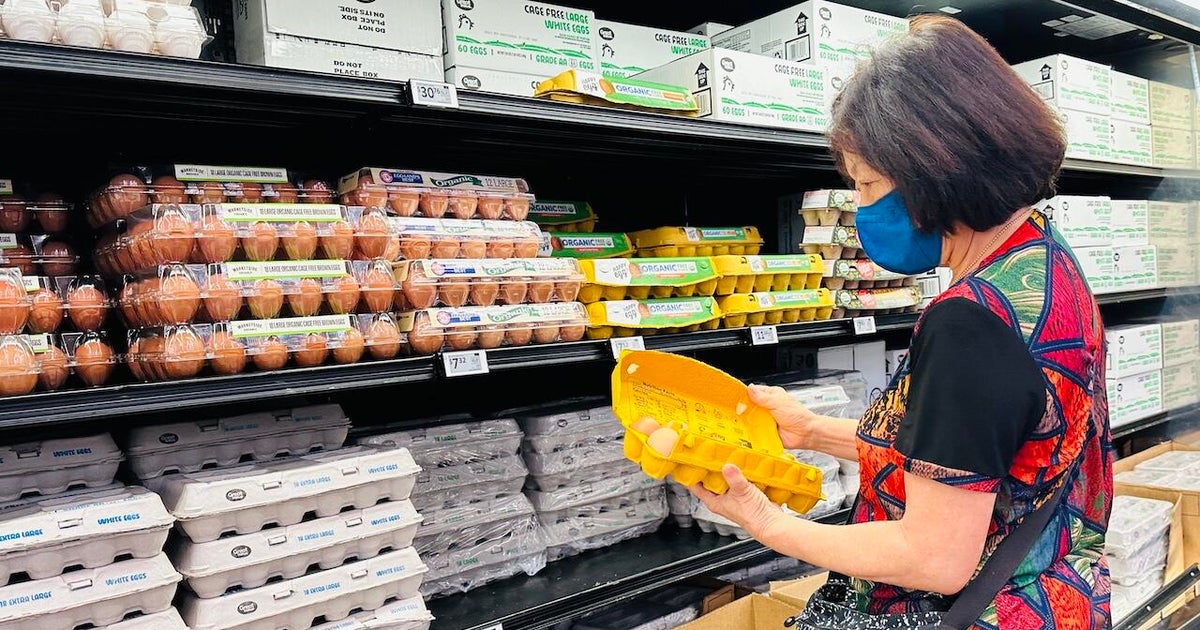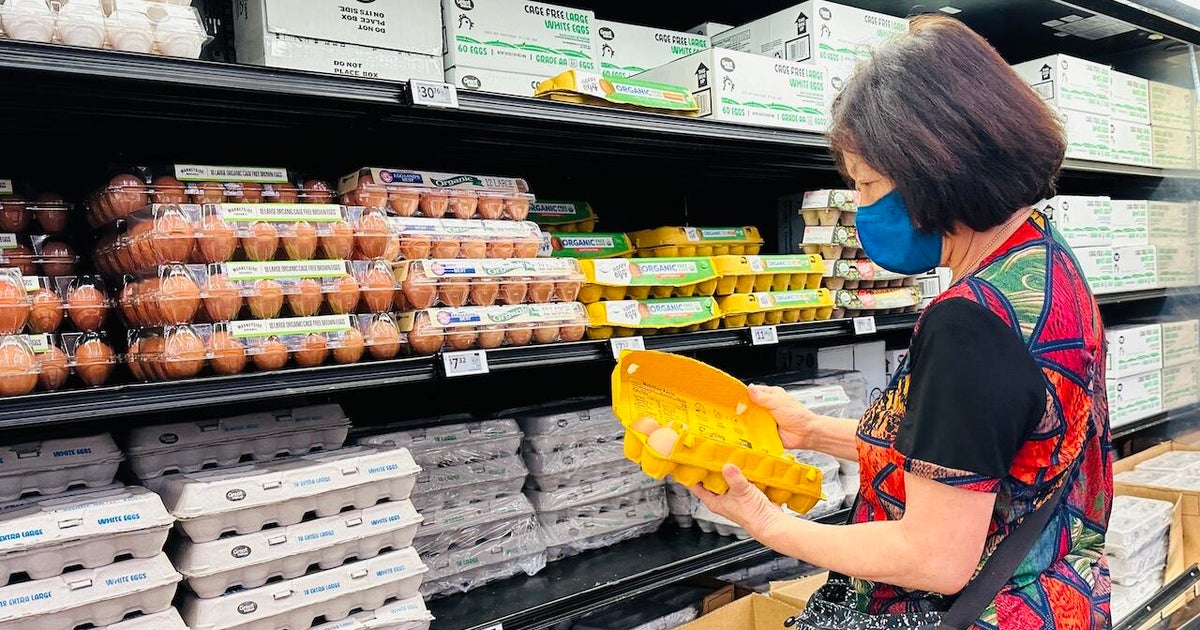

The Trump administration sued California and Gov. Gavin Newsom over the state's anti-animal cruelty laws Wednesday, alleging they are contributing to the high cost of egg prices and are superseded by a federal law regulating egg quality, inspection and packaging.
In its complaint, the Justice Department is attempting to block state laws that require additional space for hen-growing chickens, arguing they are "unnecessary red tape" and "do not advance consumer welfare."
"California has effectively prevented farmers across the country from using a number of agricultural production methods which were in widespread use and which helped keep eggs affordable," the Justice Department wrote in its civil complaint.
Two California ballot initiatives, passed in 2008 and 2018, mandate higher standards and housing requirements for hen-laying chickens and eggs sold in the state, requiring the birds to be given enough space to extend their limbs and move without touching another bird.
The 2018 ballot initiative also bars hens from being kept in any "enclosure other than a cage-free housing system" and mandates space requirements for breeding pigs and calves raised for veal.
Those laws, the Trump administration alleges, are preempted by the Supremacy Clause of the Constitution and the Egg Products Inspection Act, which was passed in 1970. The Trump administration also cites data that showed in the years after the first major restriction was passed, egg production in the state decreased and egg prices increased by 20%.
California's requirements, the Justice Department says, "were driven by activists' conception of what qualifies as 'cruel' animal housing, not by consumer purchasing decisions or scientifically based food safety or animal welfare standards."
Supporters of California's laws, like the Humane Society of the United States, argue they protect farm animals from being "locked in cruel and extreme confinement." In many cases, egg-laying hens are confined to tiny cages.
"Locking farm animals in tiny cages is not only inhumane and cruel, it increases the risk of food safety threats like salmonella and E. coli, while also increasing the risk of another pandemic," the Humane Society said in 2023.
In a post on X, Newsom's press office wrote that President Trump is "back to his favorite hobby: blaming California for literally everything. Next up: Gavin Newsom caused the fall of Rome and sent the asteroid that wiped out the dinosaurs!"
"Americans across the country have suffered the consequences of liberal policies causing massive inflation for everyday items like eggs," Attorney General Pam Bondi said in a statement. "Under President Trump's leadership, we will use the full extent of federal law to ensure that American families are free from oppressive regulatory burdens and restore American prosperity."
The Trump administration's suit is not the first time that the state's egg laws have been challenged in court.
In both 2016 and 2017, Republican state attorneys general unsuccessfully sued to block a provision that required the hens to have additional space in their housing units. The Supreme Court declined to hear the case in 2019. Two years ago, the high court also rejected a challenge to the state's 2018 animal confinement law brought by pork producers.
Wednesday's lawsuit is the Trump administration's latest legal move against Newsom, who is a frequent critic of the president. It also comes after blowback about a spike in egg prices earlier this year.
Egg prices nationwide averaged $4.55 per dozen in May of this year, according to CBS News' price tracker. U.S. Department of Agriculture data indicates that wholesale egg prices are only slightly higher than at this time last year, after prices spiked in late 2024.
According to USDA egg market data published earlier this month, prices of California-complaint wholesale eggs rose 15 cents week-to-week from June 20 and June 27, and were up 80 cents since May 30.
The complaint does not mention the bird flu epidemic that has ravaged the egg industry and drove egg prices up to record highs in March, when the average price of Grade A eggs in U.S. cities reached $6.23 per dozen, according to federal data.








-3.png)



